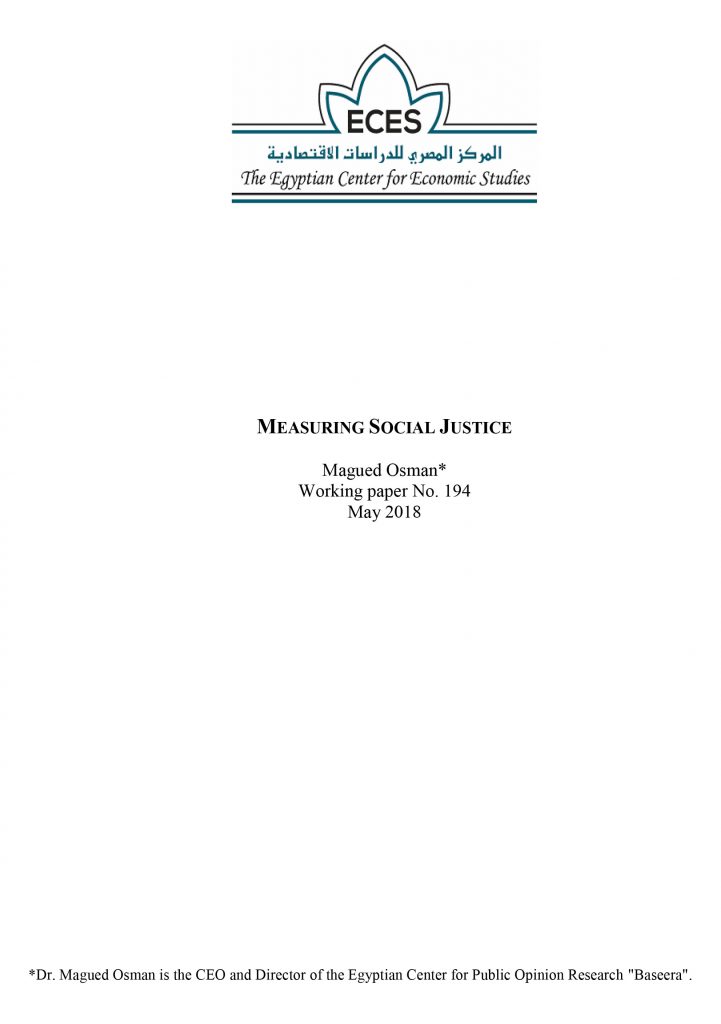Social justice is realized when every member of society has the same opportunity to rise to a higher economic or social bracket based on merit, and when no individual is discriminated against based on wealth, gender, religion, ethnicity, class, age, profession, or skin colour. Social justice reaches its apex when social mobility becomes based entirely on merit. This paper suggests an approach to measure social justice throughout a composite index derived from a framework that assumes that achieving social justice depends on the level of equality between individuals in society in human capital, and in social and cultural capital. Human capital includes five dimensions: education, knowledge and access to information, employment, health and culture and recreation. Social and cultural capital includes five dimensions: justice, trust, satisfaction with life, safety and participation. A set of indicators was used to represent each dimension. The index was applied to measure inequality attributed to five gaps: geographical, gender, wealth and generational. Applying the framework on Egypt shows that a wider inequality in human capital exists between the rich and the poor, while, the wider gap in social capital exists between urban and rural population.

Measuring Social Justice
06-06-2018
Author(s): Dr. Magued Osman, CEO and Director of the Egyptian Center for Public Opinion Research “Baseera”
Publication Number: ECES-WP194-E
